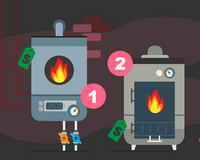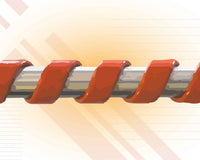When it comes to fixing up and repairing manufactured home parts, there are some do-it-yourself (DIY) items. Though, we can’t always do everything. Today, we have the tools and the knowledge available to find out how to get things done. Sometimes, there will be items in your home that you will not be able to fix no matter how hard you try. This is why it’s important to learn how to hire contractors for your manufactured home parts.
Do your Research
When I started out, I learned there are contractors who specialize in fixing up and repairing mobile homes. Whether they be handyman, plumber, roofer, or air conditioning businesses, they all are familiar with repairs when it comes to manufactured home parts. The key is to locate these people before you get into a jam. So, where can you find them?
Park Managers
If you live in a mobile home park, a good source of information will be the park manager. Most times, they are in charge of fix up work when it comes to park owned mobile homes. Park managers interview contractors on a regular basis. As a result, they may be a good source of referrals. Though, they may not have the best or the most reasonably priced referrals. There have been times when I have used contractor referrals from park managers only to be disappointed with the results. Sometimes it does happen. Remember, park managers are people too.
Community Announcement Boards
In many mobile home communities, there are announcement boards where residents and local businesses can post up flyers or special announcements (i.e. garage sale, for sale, etc.). On many of these bulletin boards, I’ve found flyers and business cards of people who specialize in mobile home repair work. Some are full-time businesses while others are individuals who do these kind of jobs on the side when they are not working. Some may even be park residents. In fact, I found my main handyman this way. Just by reading the board, I decided to contact him and found out mobile homes was his specialty. I’ve been working with him ever since.
Maintenance Staff
Apart from the park manager and community announcement boards, I’ve found the maintenance staff in the park to be a good source of help when it comes to mobile home repair work. Now, they do have to do the work on their own time. Though, since they do these kind of jobs for the park on a regular basis they have the experience. In fact, you can even see some of the park owned homes to check out their work.
Mobile Home Dealers
Local mobile home dealers are also a good source of information when it comes to finding contractors. Since they sell manufactured homes, dealers have to make arrangements with local contractors for moving, installing and set-up of mobile homes on a regular basis so they have contacts in that area. Big ticket jobs for electricians, plumbers and heating, ventilation and air conditioning (HVAC) contractors are all potential referrals.
Neighbors and Community Residents
Talking with neighbors and park residents are also good ways to find contractors. If they just did a job for a neighbor, you can ask for feedback and see their work. There are contractors who work specific neighborhoods and specialize in manufactured home parts. They will be around. You just need to find them.
Interviewing Contractors
When you first contact a contractor over the phone, tell them the issues that you are having and ask if they can come out and “take a look.” This is the exact wording I use. I do not say anything about getting the job done because they will assume they already have it. Be sure to only work with people you feel comfortable with. If the contractor sounds like someone you may not get along with on the phone, it could also be the case in person. Only work with people who work with your personality.
Meeting with Contractors
Once you set an appointment with a contractor, you’ll have the opportunity to meet them in person. One thing I measure with people is their promptness and ability to communicate. If the contractor shows up on time, that’s great. Even more, if the contractor calls you ahead of time to confirm your meeting that’s even better. It shows responsibility on their part. If their late but call you to let you know, that’s understandable. They could be coming in from another job or fighting the traffic. Though, if they are late and do not call it’s not be a good sign. Or, if they don’t show up at all it’s not someone you want to work with.
Upon their arrival, the contractor will ask you to see the problem. Take them to the problem area. Tell them the history of the situation. If they have to check a system (i.e. plumbing, HVAC, etc.), let them perform their diagnostic. After their evaluation, they should be able to determine the problem and offer solutions. Most good contractors will give you a couple of suggestions including the most cost-effective, middle-of-the-road and expensive routes to take. In most cases, I take the most cost-effective route as long as the problem can be fixed.
Get Estimates in Writing
When you start meeting with contractors, you’ll need to evaluate and get estimates before you hire them. This is a very important point. Most people hire the first person that comes out. Unless it’s a safety issue, you’ll want to get multiple estimates before you make a decision. I suggest getting at least three good estimates. When receiving estimates, you can tell other contractors what came in which may help in negotiating price.
Regarding the estimate, some contractors will give you one right on the spot. Make sure you get it in writing. If you have multiple jobs, get a line by line estimate for each item you discuss. This way you can choose what you want and don’t want to do. Be wary of contractors who give you one full-blown estimate for multiple jobs. Each job should be itemized with a definite timeline of completion. Sometimes contractors may need to go back and confirm prices on materials and labor so getting an estimate in a couple of days is OK. Usually, they can either e-mail, fax, or come back with the estimate. Remember, get a few estimates before you make your decision. Many times, you can talk to one contractor about one option and then another one comes by with another option. Or, one may tell you something and another one can say something completely different. Once the contractors keep telling you the same thing, that’s when you know you’re contacting the right people. The issues should be uniform.
Hire the Right Contractor for the Job
When meeting with contractors, you want to hire the right one for the job. This means working with people who specialize in their particular niche. No one knows how to do everything. This goes for contractors as well. Be wary of those who say they can do all types of jobs. If someone tells you they can do painting, plumbing, roofing, HVAC work — be cautious. Most times, good contractors will tell you what they can and cannot do. The exception is when you are hiring a general contractor who acts more like a manager. Usually, general contractors will hire subcontractors and supervise. This can work as well. Though, general contractors receive a percentage of the overall payment. This is a cost you can save if you decide to hire contractors yourself.
Paying Contractors
Once you’ve made a decision on who you’re going to hire, you’ll have to make payment arrangements. This can be done several ways. For smaller jobs, most contractors will take payment upon completion. Inquire about payment methods upfront as it will save you time and money. If you’re working with a smaller company, they may only be setup to take cash or check and not credit cards. For larger jobs, you may be required to put a small down payment to cover materials and upfront labor costs. Most contractors who require a down payment will tell you upfront and have a set schedule. You can also make arrangements to pay as they go or agree to pay them once the job is done. Above all else, never pay a contractor the full amount upfront. If you encounter one of these contractors, walk away. Full payment should not be received until the work is completed.
Pay for Labor Versus the Entire Job
Another option is to pay for the labor and provide the materials instead of paying for the entire job. Personally, I’ve done this on several occasions. Many times, this involves a handyman type of repair (i.e. painting, installing a piece of drywall, etc.). In this scenario, you may be able to cut costs by buying your own materials. Though, the downside is you will have to take the time to research, purchase and transport the materials to your home. In the first scenario, the contractor takes care of the materials and transport. This is merely an option and depends on your comfort level and budget. Whichever route you decide, make sure whoever you hire for the job has their own tools and transportation.
Job Completion
Once the job is complete, be sure to inspect the contractor’s work. Make sure everything you agreed to has been done. If there are any issues, bring them up. Remember, you agreed to a specific standard of work. Be sure to hold the contractor up to that standard. If for some reason you are unhappy with the job, talk to the contractor. See what can be done to fix the issue. Good contractors will listen to you and correct the situation. Bad ones will not. Hopefully, you hired the right contractor in the first place.
Conclusion to Hiring Contractors for your Manufactured Home Parts
Learning how to hire good contractors is more of an art than an exact science. By putting in the time to interview contractors and asking the right questions, you will gain experience and knowledge. Though it may be a long process, this habit will save you both time and money in the long run.






